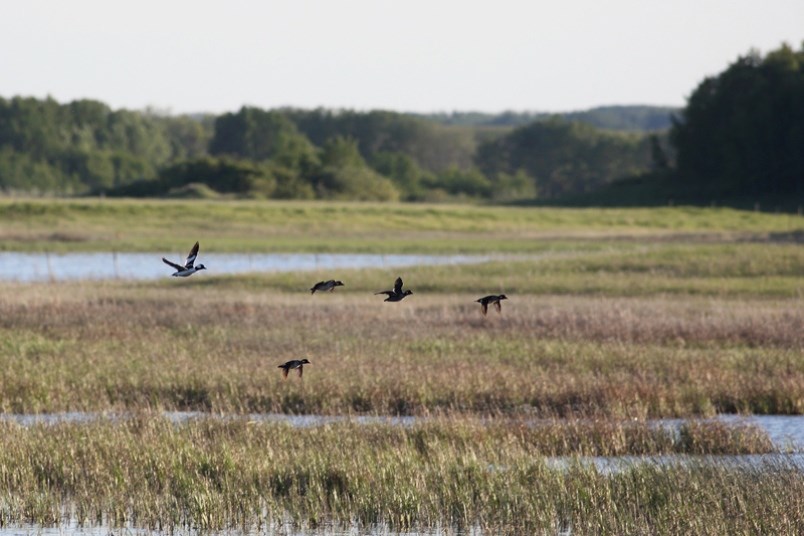YORKTON - When we think of Saskatchewan farms we tend to hold pictures of fields of wheat or canola, or maybe a pasture dotted with cattle, as images in our mind.
While those are certainly part of a Saskatchewan farm, another image might well be a wetland slough with ducks swimming.
Sloughs and wetlands have of course been part of the farm landscape from day one, areas normally too wet to allow for crop production, so left to nature.
Of course through the decade’s farmer ingenuity and better equipment has allowed many wetlands to be drained so they can be productive acres for crop.
That reality is very much a good news – bad news one.
It can be good in terms of the individual farmer adding a few acres and not having to manoeuvre ever larger equipment around sloughs.
For example, “wetlands help mitigate the extremes of flooding or drought, and they store carbon by helping remove sediments, impurities, excess nutrients and bacteria, cleansing waters used for cooking, bathing and quenching thirst,” noted the Nature Conservancy of Canada in 2016. “Over two-thirds of Canadians get their drinking water from lakes, rivers and reservoirs, and the quality of that water depends on watershed health and functioning wetlands. Like giant sponges, wetlands absorb, filter and replenish water as well as buffer our communities from climatic extremes.”
Wetlands are also an important ecosystem.
“Wetlands are also key nesting and feeding grounds for many migratory bird species including waterfowl and shorebirds, and they are nursery habitat for amphibians and fish, as well. At least one-half of our wildlife species rely on wetlands for part of their lifecycle,” reported the Nature Conservancy of Canada.
So it’s not surprising that World Wetlands Day (WWD) is celebrated each year on Feb. 2, which marks the day when the Convention on Wetlands was adopted in 1971 in Ramsar, Iran. The Convention is an international government agreement acknowledging the importance of wetlands and plays a central role in the wise use and conservation of these critical ecosystems.
The importance of a wetland extends far beyond the small piece of land owned by a farmer where it exists.
So perhaps draining the slough is a positive for a farmer, but less so for the broader community.
If that is indeed the case, should a farmer hold those acres out of production for the broader good, at his cost?
That doesn’t seem particularly reasonable but is generally the case, which makes one wonder if it’s not time for tax concessions, or outright annual grants, to make it a good business decision for farmers to maintain wetlands?






